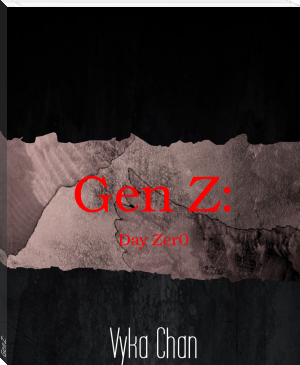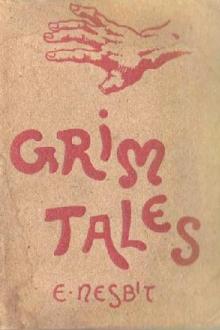Callisto 2.0 - Susan English (sad books to read .txt) 📗

- Author: Susan English
- Performer: -
Book online «Callisto 2.0 - Susan English (sad books to read .txt) 📗». Author Susan English
Diana’s eyes sparkled. “I can assure you, my dear, it was not idle chance.” She entered a hovercar waiting for her at the curb, leaving me in front of the restaurant, watching her departure, utterly bewildered.
10
The week went by quickly. At first, it was hard to imagine how I was going to endure the wait, but, as always, there was my work. My dank workspace, the only furnishings a wobbly desk and a chair whose cracked leg was held together with duct tape and a prayer, the single window in my tiny apartment which opened onto an air shaft, its walls covered in pigeon dung, my lumpy mattress—all my surroundings faded away into oblivion once I focused on my theories. I had the sensation that I was close to realizing my goal—to understand how to overcome the fundamental speed limit of the Universe: the speed of light. I had been struggling with the theory for years, and had some working hypotheses not yet tested, but at the Foundation’s space station, perhaps I could continue my research. And if what Diana had said about unlimited funding was true, that would be like hitting the scientific jackpot. Hard to imagine it could be real.
The day of my trip finally arrived. I had packed my backpack with just a few personal items—passengers weren’t allowed to carry much weight on space flights. In any case, I didn’t have much. Clothes never interested me and, except for my notebook, all my books, notes from my classes, scientific articles, and my own work were in electronic format, easily accessible from my wrist computer or computer tablet.
Taking the monorail train to the airport, my eyes were drawn to the crush of high-rises in the city center, gradually thinning out and giving way to smaller buildings, their boarded-up windows like soiled bandages on a vast, rotting corpse. This was not the scenic route, which lay on the opposite side of the city where the wealthier citizens lived—their tidy, colorful houses arranged in perfect grids, with xeriscape yards boasting hardy cacti and other heat-resistant succulents, absorbing the scant morning dew like thirsty sponges, in preparation for the long, brutal days under a merciless sun.
I arrived at the airport in plenty of time for my flight to Cuba, where I would catch the shuttle to Earth Central, the commercial transport station in orbit around the Earth.
The next stop would be the Lunar Orbital Station—nicknamed Tako, Japanese for octopus, because of its configuration: eight “arms,” each terminating in a docking station—then take a shuttle to the surface of the Moon, and, finally, a private shuttle from the lunar surface to the Foundation’s orbital laboratory. Diana had, as promised, sent me a detailed itinerary, along with the confirmation number of the flight, paid for by the Foundation, and she had even sent a courier—an actual human being instead of a machine—to my apartment to transfer a generous sum into my paltry bank account via my wrist computer, for the metro ticket and any incidental expenses.
The flight by hypersonic jet took almost an hour. The interior of the jet had a distinct odor, part metallic, part earthy—the latter most likely due to the mycelium fiber in the seat cushions. For some reason the smell triggered a memory of the first time I had traveled by plane, to Vancouver with my father. Only ten years old, I had begged him for months to take me to the celebration of the thirty-year anniversary of Stargazers 11
Aeronautics, the company responsible for almost single-handedly removing the decades-long accumulation of space debris orbiting the planet.
My father, who hated any type of travel, eventually relented, albeit reluctantly. He spent the better part of the voyage complaining, in a grumbling monotone, about everything: the high-pitched whine of the jet engine, the stifling Vancouver heat, and the celebration itself, which was, according to him, all pomp and circumstance with the cheering crowds and the organization’s ostentatious self-aggrandizement. He repeatedly pointed out how much more pleasant the experience would have been had we watched the holographic video feed of the event from our living-room couch.
My father’s censorious words fell on deaf ears—my enthusiasm was indestructible.
The thrill of flying above the clouds and the excitement of being in a new city were exhilarating, and the lectures on Stargazer history and technology left me hungry for more. A memento of that day, a perfect replica of Stargazer Alpha, the company’s first space-faring vessel, sat on a shelf in my old room in my parents’ house. It was both the first and the last time my father and I had taken a trip together.
Arriving at the Havana International Airport, Diana was waiting for me right outside the terminal exit. She was dressed like before, not the same suit, but one very similar, of equally high quality. Once again, my stomach gave a twinge at the thought of my appearance. But when she looked at me with genuine warmth and affection, without a hint of judgment in her eyes, my discomposure faded, and a little of her confidence spilled over onto me.
“Calli,” she said, taking my hand, “how nice to see you again. Do you have luggage?”
“Just this.” With a nod of my head, I indicated the pack on my back.
“Ah, you’re traveling light. An experienced space traveler.”
“Well, yes … I mean, no, not so much. I’ve been in space a couple times, because of my studies,” I said as we headed toward a waiting hovercar.
She touched the computer panel and input our destination coordinates, then smiled at me. “I’m so pleased you agreed to meet with me last week.”
“Actually, I was surprised that you’re the one in charge of hiring, being the chief scientist.”
She turned to me as the hovercraft lifted off the ground, and the vehicle accelerated slightly as it began its forward motion “Oh?” she said, eyebrows raised.
I fingered the strap of my backpack resting on the floor between my legs. “It seems like you would have more important things to do.”
Diana pinned me with her eyes. “There’s nothing more important than choosing the right team.”
The hovercar came to a stop and gently lowered to the ground. Catching a glimpse of our shuttle, a thrill of anticipation shot through my body. Even though I had visited the Moon twice and had also worked for several months on the World Government’s space station in orbit around the Earth, my enthusiasm was undiminished. If anything, my experiences made me appreciate space travel even more.
12
Diana started walking toward the launchpad, a small suitcase in one hand. I shouldered my backpack and followed her to the bottom of the passenger stairs, where two women were waiting with our spacesuits. “Let’s put our suits on out here. The shuttle’s cabin is a bit cramped.”
Setting my backpack on the ground, I took the suit from one of the women’s outstretched hands, and she helped me put my feet and legs in first, and then my arms and torso.
“The helmets are on the shuttle,” Diana said. “We can put them on after we settle into our seats.” She had also donned her suit with the help of the worker. “They will take care of our bags.” She gave the two women a warm smile.
“Thanks.” My mouth was dry, pulse pounding in my ears.
I followed Diana as she climbed the staircase and entered the craft. The shuttle was small but cozy, with six seats, all unoccupied. Two of the seats had helmets sitting on them.
Diana pointed to the seat next to the window. “Sit here, it’s worth looking outside.”
“Okay.” I picked up the helmet and sat down, stomach quivering from pure excitement.
Diana sat next to me, placing her helmet in her lap, and we fastened our seat belts.
She nodded toward my helmet, and I put it on. She did the same.
“Can you hear me?” Diana’s voice sounded metallic inside my helmet.
“Yes, loud and clear.”
“Excellent.” She pushed a button on her armrest and spoke with the pilots.
Even though the spacesuit was climate controlled, I broke into a sweat. I wasn’t claustrophobic, but never liked being enclosed in a spacesuit. They were nothing like the original spacesuits, so bulky and cumbersome, but still. It was a safety precaution, so I accepted my discomfort. A small price to pay.
At last, everything was ready, and the countdown began. A chill raced down my spine, and I grabbed my armrests, hands sweaty inside the gloves. Diana’s features were shadowed but visible through the face shield of her helmet. She was looking straight ahead. I closed my eyes.
The engines rumbled beneath my feet, but the helmet must have been equipped with noise-cancellation technology, because the noise level was tolerable. In my previous off-world trips, the sound at takeoff had been deafening. A moment later, we were hurtling toward the heavens. I gritted my teeth at the sensation—triple the gravitational force on Earth’s surface. The feeling lasted about ten minutes, then it was over, and my body relaxed. The pilots fired their rockets parallel to the Earth’s surface, and we were in orbit.
My eyes flew open. Diana’s were still closed, and she was a little pale. Looking out the window, my breath caught in my throat. Suspended in the vastness of space was the Earth, with its gossamer clouds and deep blue seas, the distant Sun a silent witness. In a matter of seconds, the brilliant light of the Sun disappeared behind the graceful curve 13
of our planet—an ethereal sunset—throwing into sharp relief the achingly thin blue atmosphere hugging the Earth’s surface, tenuous and infinitely delicate. Our biosphere: this fragile firmament acted as a precious and precarious shield, dividing the abundance and splendor of the only known life in the Universe and the brutal indifference of space.
I looked at Diana again. She seemed more relaxed, and she returned my gaze, her eyes warm and expressive. “That feeling is the worst part of space travel,” she said.
“That’s for sure.”
“At least the unpleasant part is over. And now the acrobatics to escape these suits!”
She put her gloved hands on her helmet, released the hermetic seal, then took it off and leaned over to place it on the seat across the aisle. I handed her my own helmet and pushed my sweaty bangs off my forehead with my gloved fingers. We unbuckled our





Comments (0)